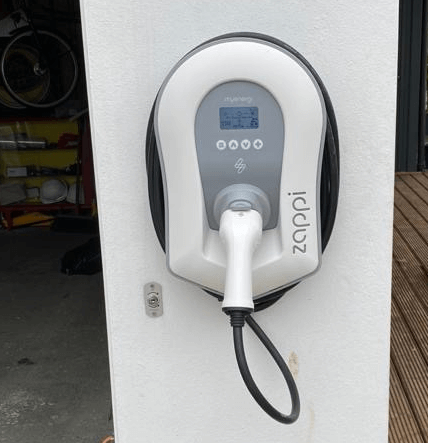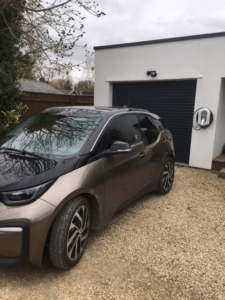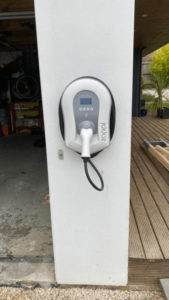
The Future of Driving
Zero emission vehicles are no longer an electric dream and, judging by the investment car companies and the Government are ploughing into the industry, they are the future of driving with electric vehicles (EVs) beginning to challenge the petrol/diesel duopoly.
So, whether you’re looking for yourself and your family or run your own business, if you’re interested in making the switch, what are the benefits of going electric?
Environmental – Clean and Green
EVs are powered solely by electricity stored in their batteries and as such have zero exhaust emissions – that’s none of the nasties that dirty and pollute our communities and damage our family’s health, and more widely, none of the greenhouse gases that contribute to global warming. So, they’re cleaner, greener and make the local environment healthier, better places to live.
Economics – Significantly Cheaper Day-to-Day

While, like for like, EVs are more expensive up-front, running costs are significantly cheaper, while Government incentives will cut your initial outlay. Translate this to a fleet of vehicles and you could save the company significant sums.
Fuel Efficiency
One of the most attractive benefits of owning an EV is the fuel savings. Nearly as easy as charging your phone, EVs can simply be plugged-in and their internal batteries charged from an electricity supply. Smart charging systems allow users to monitor their EV’s energy consumption on their smart phones and can be set to charge during the night when electricity rates are at their lowest. What’s more, there are a growing number of energy companies who are targeting EV owners with specially designed tariffs which cut the cost of home charging even more. Match some of the most efficient EVs on the market today with a competitive tariff and it could cost as little as £2 for a full charge. Your journey could cost you only 1.2p per mile compared with the average petrol or diesel, at 12p per mile.
Cheaper to Maintain
EVs are relatively simple, having fewer moving parts, compared with the complicated engines of petrol and diesel vehicles. No engine oil, fuel filters, gearbox or clutch meaning far less wear and tear, maintenance, servicing and chance of breakdown.
Government Incentives – Paying you to Go Green
EVs now enjoy a raft of Government cash-saving schemes to entice people and companies to go electric. Receive a grant of up to £3,000 for cars under £50,000, up to £8,000 for vans, up to £20,000 for large vans and trucks, up to £7,500 for taxis and up to £1,500 for motorbikes. Grants of £350 are also available towards the cost of installing an EV charge point at home, while businesses benefit from a £350 grant per socket up to 40 sockets. Once you are using the vehicle, you’ll also pay no road tax for vehicles under £40,000 and be exempt from paying congestion and low emission zone charges.
EV owners also pay no company car tax and are exempt from paying Benefit in Kind on electricity used to charge their company car at work while employers will pay reduced National Insurance contributions. EVs bought for businesses also qualify for a 100% First Year Allowance.
Practicality
Change for the Better
Some of the resistance towards going electric stems from worry about the range of EVs or ‘range anxiety’ as well as the concern that you’ll forget to charge them. It definitely is a change in behavior, but it is a simple process to plug-in to you EV charge point at the end of your journey and can be a change for the good. Some EV owners, who live in the country for example, have said that they hated having to do a special trip to a petrol station to fill-up and that they find it much easier just plugging in at home.
Range Anxiety
Most EV owners just top-up their batteries at home overnight so they’ve always got a full charge in the morning. If needed though, a 7kW home EV charger can charge from zero to full in 5 to 10 hours, while a rapid charger takes under an hour. Most EVs can travel more than 100 miles on a single charge, while some can reach as much as 300 miles, meaning they could comfortably handle the 15-mile average UK commute.
Always Near a Charge Point

For longer journeys or if you need to top-up while out and about, there will always be a charge point within easy reach. The UK now has one of the largest EV charging networks in Europe, with more charging locations than petrol stations. At the end of 2019, there were 15,000 charging stations across the country, equating to 22,500 charging points, 2,000 rapid charge points and at least one rapid charge point at over 95% of all motorway services areas.
The vast majority of charging stations are pay-as-you-go with no membership requirements, while handy Apps will guide you to their location, tell you if they’re available and in service, and will plan your journey based on their location so you needn’t worry when the next is.
While you’ll need off-street parking to install your own charge point, those without that luxury are also increasingly benefitting from the Government’s On-street Residential Parking Scheme, which has delivered 2,000 on-street charge points.
Driving Experience
Shrugging off their ugly past, new models can be all their internal combustion engined cousins are: fast, powerful and sleek. What’s more, they provide a quiet, relaxing driving experience with a comfortable ride and, because most have their battery pack housed in the floor, they have excellent handling.
Switching To EV
If you are interested in making the switch to EVs, fill out our contact form, and one of our experienced team will be in touch to discuss your requirements.
NGRE specialise in the supply of the latest renewable solutions for homeowners, architects and builders in Oxfordshire and surrounding areas and have more than 10 years’ experience. Next Generation can carry out the installation of the latest EV charge points, alongside solar panels and battery storage units.